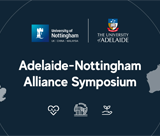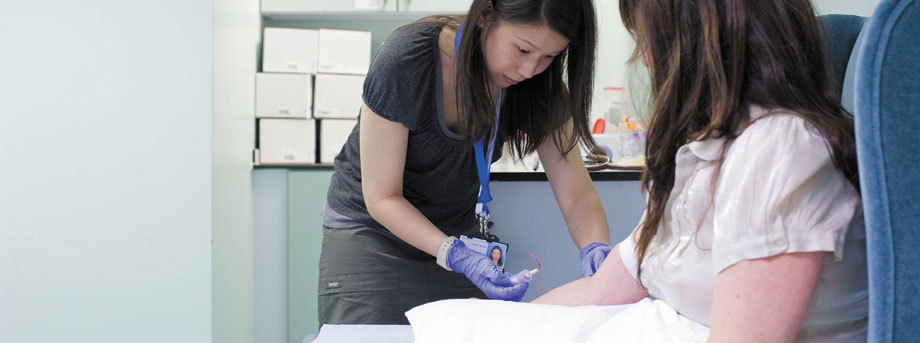Blood test for cancer is trialled by NHS Scotland
April 16th, 2012
The NHS in Scotland is to conduct a major screening trial for lung cancer using a new blood test developed by Oncimmune Ltd, a University of Nottingham spinout company. It will be the first time the blood test has been used outside the US.
EarlyCDT-Lung, which has been available in America for two years, detects cancer at its earliest stages and could save a significant number of lives and reduce the care costs for this high-risk population.
Funded by NHS Scotland, The Centre of Excellence for Autoimmunity in Cancer (CEAC) at The University of Nottingham and Oncimmune Ltd, the randomised prospective trial is to ascertain the cost–effectiveness of EarlyCDT-Lung and will include 10,000 high-risk smokers. Screening will start before the end of the year and the first results are expected before the end of 2014.
Currently just nine per cent of lung cancer patients in the UK are still alive five years after diagnosis.
The blood test is based on pioneering research into the body’s immune response to cancer carried out over the last 15 years by Professor John Robertson, Director of CEAC and Chief Scientific Officer of Oncimmune Ltd.
Prof Robertson said: “The test is highly reproducible and will, I believe, lead to significant improvement in prognosis for a substantial number of lung cancer sufferers. The significant amount of performance validation work that we carried out before the test was launched in the US has led to the test performing commercially as expected. A randomised screening trial of this nature will help validate its use as a screening tool.
“We are working hard on bringing the next test for the early detection of breast cancer to the market within a year. We are also working on a number of similar tests for prostate, colon and ovarian cancer — a blood test to aid detection of all tumour cancers (70% of all cancer) is still the overriding objective of our work.”
Sir Harry Burns, Chief Medical Officer for Scotland, said: “The earlier a cancer is diagnosed the greater the chance it can be treated successfully, and currently 85% of patients with lung cancer remain undiagnosed until the disease has reached an advanced stage.
“This pilot project is part of our Detect Cancer Early programme, which aims to increase the early detection of cancer by 25%. By testing those at greatest risk of developing lung cancer, and diagnosing it at its earliest possible stage, we stand a better chance of being able to treat the cancer successfully. This means patients can be treated when their general health is better and when less aggressive treatment may be required than if the cancer had spread.”
Professor David Greenaway, Vice-Chancellor of The University of Nottingham, said: “The ground-breaking research carried out by Professor Robertson and his team and the innovative techniques developed by Oncimmune have combined to produce a viable and cost-effective blood test for cancer which has the potential to save many lives. This is truly translational research of which we can be proud. With the fund of knowledge and expertise brought together under CEAC hopefully it won’t be long before other cancers can also be identified at a stage where more lives can be saved.”
Tags: Chief Scientific Officer of Oncimmune Ltd, Director of CEAC, EarlyCDT-Lung, lung cancer, Oncimmune Ltd, Professor John Robertson, The Centre of Excellence for Autoimmunity in Cancer (CEAC)
One Comment
Leave a Reply
Other News
Trusted Research update: changes to technologies requiring an export control licence
The UK Government has issued an updated UK Strategic Control List, introducing additional export control measures […]

Adelaide-Nottingham Alliance: join Vice-Chancellors at event celebrating global partnership
Staff, students and researchers are invited to join the Vice-Chancellors of the University of Nottingham and […]



July 29th, 2013 at 3:30 pm
Heather
This was a similar idea to what my doctor said when I first had colon cancer. He tested my blood to find out about it and thank goodness that the cancer was in the initial stages.